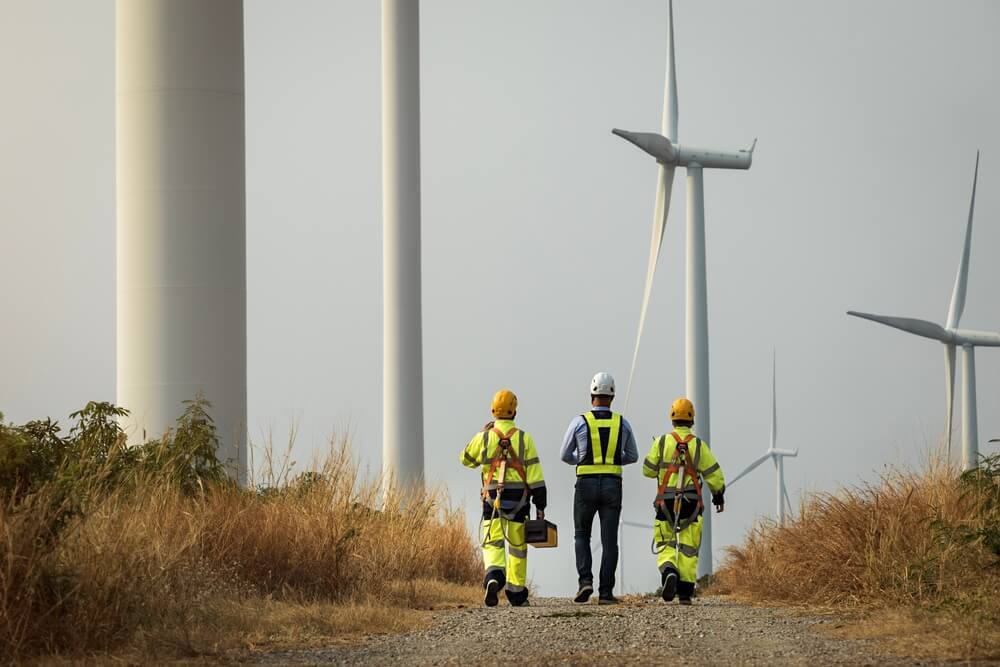Greetings, Agents of Impact!
Featured: Impact Voices
Two impact investors mine their portfolios for lessons for 2022. The twin crises of COVID and climate change have created challenges and opportunities for impact investors and their portfolio companies. In a pair of guest posts, two very different investors – family office Ceniarth and climate venture firm Energy Impact Partners – reflect on the deals they did in 2021 for signs of what’s to come in the year ahead.
1. Impact first with family office Ceniarth. On a path to move 100% of its holdings to what the family office calls “impact-first capital preservation,” Ceniarth notched 20 deals in 2021 with more than $30 million in new commitments. It remains “cautiously encouraged that a select number of foundations and wealthy individuals are stepping up to take higher risks, lower returns and longer time-horizons to put impact first,” write managing directors Diane Isenberg and Greg Neichin in a guest post. “In addition, we continue to find resonance with faith-based investors,” like the Mercy Partnership Fund. (For context, see, “In search of existential answers and impact-first investors, Ceniarth finds religion.”)
- Existing partners. Patient, impact-first investments included a $3 million commitment to Global Partnership’s Impact-First Growth Fund, and $1.5 million to the mezzanine tranche of Lendable’s new MSME Credit Fund. Ceniarth backed other funds, including WaterEquity’s Global Access Fund, Quona Capital’s third fund, Bridges Fund Management’s fifth property fund, and Microvest’s Enhanced Debt Fund.
- Bridges to somewhere. Isenberg and Neichin say Ceniarth for the first time “suffered meaningful capital impairments” in its direct lending, and “struggled through painful decisions to shut down or scale back select enterprises.” The family office made new commitments to the Kiva Capital Refugee Investment Fund, the Koret Israel Economic Development Fund and IIX’s fourth Women’s Livelihood Bond.
- Keep reading, “Ceniarth seeks to build ‘bridges to somewhere’ with its impact-first portfolio,” by Diane Isenberg and Greg Neichin.
2. Beyond wind and solar: what’s next for Energy Impact Partners. With investment partners ranging from Duke Energy to Microsoft, Energy Impact Partners’s collaborative venture capital and billion-dollar funds put it at the forefront of climate tech investing. Such technology is critical to helping the firm’s 33 partners navigate and lead the energy transition (for context, see “Corporate collaboration”). EIP’s bets? Technology solutions that support the shift to wind and solar power, such as battery tech, as well as emerging clean alternatives like fusion, carbon capture and storage, share EIP partners Peter Fox-Penner and Andy Lubershane.
- Industrial strength. “Decarbonizing hard-to-abate industrial processes through electrification became a major trend last year,” write Fox-Penner and Lubershane. Portfolio companies include Boston Metal, which is electrifying virgin steel manufacturing; Sublime Systems, for decarbonizing cement production through electrification; Nitricity, which transforms air, water and electricity into fertilizer; and Rondo, a startup that turns excess renewable energy into high-temperature heat that can be stored and used for industrial processes.
- Electrify everything. What’s ahead for 2022? “More clean power generation complements to wind and solar, carbon management and the electrification of… well, everything,” they write. On their radar: heating and cooling for residential and commercial buildings, next-generation vehicle electrification and charging tech, and low-carbon replacements for plastics and other key materials.
- Keep reading, “Energy Impact Partners builds a tech portfolio for the low-carbon transition,” by Peter Fox-Penner and Andy Lubershane.
Dealflow: Follow the Money
Career Karma raises $40 million to reskill workers for digitally-based careers. Nine out of 10 employers see or expect to see skill gaps in their workforce. San Francisco-based Career Karma provides online and in-person job training in coding, web design, cybersecurity, and data science and analytics for more than 25,000 monthly users, most of whom are people of color. Most of the Black-led company’s early investors are women and people of color, says CEO Ruben Harris. Its Series B round was led by Top Tier Capital Partners, with participation from GV, Softbank, Kapor Capital, Backstage Capital and others.
- Quality jobs. Career Karma will offer courses in partnership with colleges and universities and with companies seeking to upskill and reskill their employees. The company is moving its headquarters to Miami to provide job training for tech workers. “If the local people don’t get the skills to take advantage of the job opportunities provided by the VC’s and entrepreneurs that are also moving there,” writes Harris, “the cost of living will go up and the same gentrification situation that happened in San Francisco will happen there too.”
- Share this post.
Silicon Ranch secures $775 million for clean energy in rural communities. The Nashville-based company provides clean energy and carbon and battery storage for rural communities in the U.S. and Canada, with four gigawatts of solar power and storage under contract. The equity investment will support Silicon Ranch’s efforts to co-locate renewable energy production with regenerative agriculture to sequester carbon and restore grasslands around its solar and battery arrays. Silicon Ranch has raised $1 billion in the past 12 months.
- Climate finance. Toronto-based Manulife Investment Management, the insurance giant’s asset management arm, led Silicon Ranch’s round with a $400 million investment. Dutch energy giant Shell also joined the round. Silicon Ranch acquired Clearloop in September last year to expand its corporate offerings.
- Check it out.
Dealflow overflow. Some of the other investment news crossing our desks:
- Canadian sustainable supply-chain management firm Assent Compliance secures $350 million from Vista Equity Partners.
- Parrot scores $9.5 million to help restaurants in Mexico digitize business operations, including online orders and table service.
- JABU secures $3.2 million to help Namibia’s small businesses source inventory and manage their supply chains.
Signals: Moscovitz Prize
Long-term investors cotton to firms scoring high on ESG, and vice versa. It makes sense that pension funds with long investment time horizons would gravitate to portfolio companies that take seriously the environmental, social and governance factors that drive long-term performance. Now there’s research to support that thesis. The latest winners of the Moscovitz Prize, awarded by Northwestern University’s Kellogg School of Management for empirical studies of sustainable investing, showed that the portfolios of investors with longer gaps between buying and selling have a higher proportion of holdings in firms with higher ESG scores than do the portfolios of shorter-term investors.
- Time horizon. In “Corporate ESG Profiles and Investor Horizons,” prize-winning authors Laura Starks of the University of Texas’ McCombs School, Parth Venkat of Alabama’s Culverhouse School of Business, and Qifei Zhu of the Nanyang Business School showed that “high ESG” firms have more long-term shareholders. Moreover, those long-term investors are sticky: they are less likely to sell a high-ESG firm than a low-ESG firm when shares or earnings fall.
- Virtuous cycle. “The implication for firm management is that if you have better ESG, you’re going to be more attractive to long-term investors,” said Starks, a longtime mentor for academic researchers in sustainable finance. “So to get these investors, you should improve your ESG, which is good for society overall.” Added Kellogg’s Lloyd Kurtz, who originated the Moscovitz Prize 25 years ago while at Wells Fargo, “The idea is that if markets are myopic and fixated on one- and two-year performance, they might be getting the long-term picture wrong, and there might be opportunity for long-term investors to profit.”
- Share this post.
Agents of Impact: Follow the Talent
Generate Capital is looking for an investment team analyst… Blueprint Local is hiring a remote investment associate… ImpactAssets seeks a remote investment strategist and investor relations person… Sorenson Impact is hiring a managing director for impact investing in Salt Lake City… JPMorgan Chase seeks a lead for impact private-equity manager selection in New York… Ford Foundation is looking for an impact investing fellow in New York… Social Finance has openings for a director of impact investments, a vice president of impact advisory and other roles in Boston, Austin, San Francisco and Washington, D.C… Hispanics in Philanthropy seeks a remote senior venture associate or principal.
Thank you for reading.
– Jan. 11, 2022










